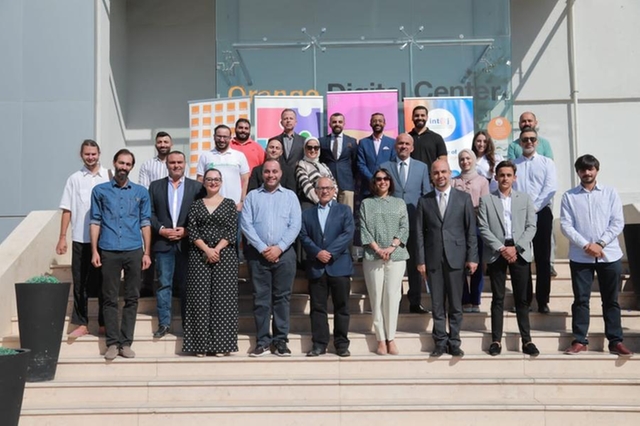A Social Entrepreneurship Mapping study done by iLearn showed that 61% of non-profit institutions and initiatives working in the field of social impact are concentrated in 3 governorates, Amman, Irbid, and Zarqa, the study was conducted in partnership with the Information and Communications Technology Association, “Int@j”, and sponsored by Orange, which was announced under the patronage of the Minister of Digital Economy and Entrepreneurship, Ahmed Al Hanandeh, along with representatives from organizations that support entrepreneurship.
Jordan’s first-of-its-kind study was conducted over the past three months aiming to map the vital components of social entrepreneurship, identify companies working in this field based on their societal impact and contribution to achieving sustainable development goals, and help decision-makers, companies, and supporting institutions. Whereby this type of entrepreneurship is not solely based on profit, it is also concerned with finding innovative solutions of socioeconomic value while achieving sustainability and positive change.
Following the study’s criteria, this national survey included 301 non-profit institutions and initiatives that work to achieve social impact, whether registered or not, across the Kingdom’s governorates. The survey mainly focused on the social impact efforts in education, economic empowerment, and culture, as well as the lack of it notably in agriculture, media, and business development. In addition, it showed that 632 institutions provided their services to over one million beneficiaries annually, with an average of 1500 beneficiaries per institution.
The study showed some of the challenges social impact institutions face, as most of them lack a sustainable product that generates returns, while 85% of unregistered initiatives are considering registering, the grand majority needs financial support and legal guidance.
In regard to women’s participation, 44% engaged in non-profit institutions and initiatives in the social impact sector, mainly in charities, while their presence decreased in leading cooperatives and non-profit organizations, while surveyed institutions showed 1450 permanent employees, of whom 60% are women.
Chief Corporate Communication and Sustainability Officer at Orange Jordan, Eng. Rana Al Dababneh affirmed Orange’s commitment to developing the entrepreneurial ecosystem and supporting startups, especially those that serve socio-economic growth, this includes supporting the journey of aspiring entrepreneurs through expanding their reach in the Kingdom and establishing various programs, initiatives, and opportunities. In addition to its strategic partnerships to develop this sector and support innovation.
Chief Executive Officer of int@j, Eng. Nidal Bitar, said, “This first-of-its-kind map focuses on societal needs, noting that this new approach to entrepreneurship contributes to solving societal issues in a qualitative manner based on an innovative idea that does not create financial burdens.”
He also stated that this map will become a comprehensive guide based on societal needs in various sectors, noting that technology has become an enabler to overcome challenges in addition to assisting in development and modernization.
Chief Executive Officer of iLearn, Saddam Sayyleh, said. “This study seeks to identify Jordan’s most pivotal institutions and initiatives that shape the social entrepreneurship scene, as this study will pave the way for everyone in this field to find communication and cooperation opportunities, deploy the resources of the social entrepreneurship sector more effectively and in a better quality, and to better understand the socio-economic impact of the entrepreneurship.

